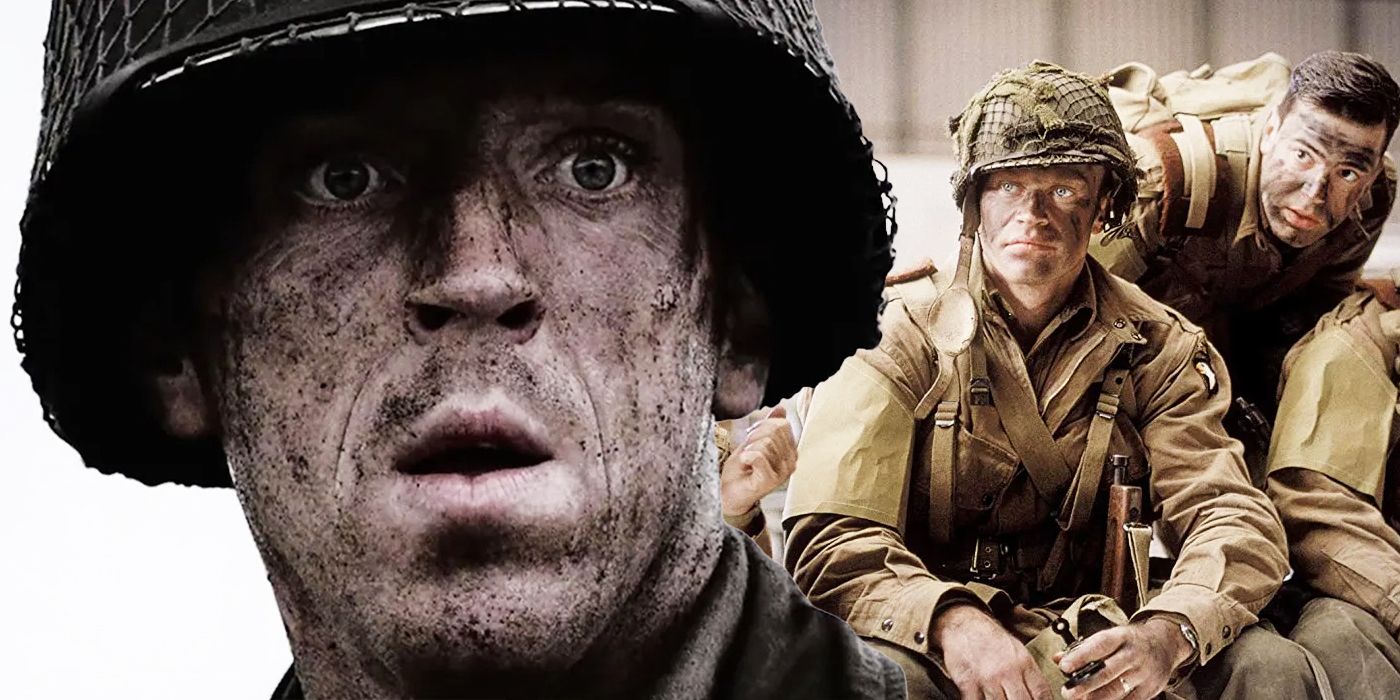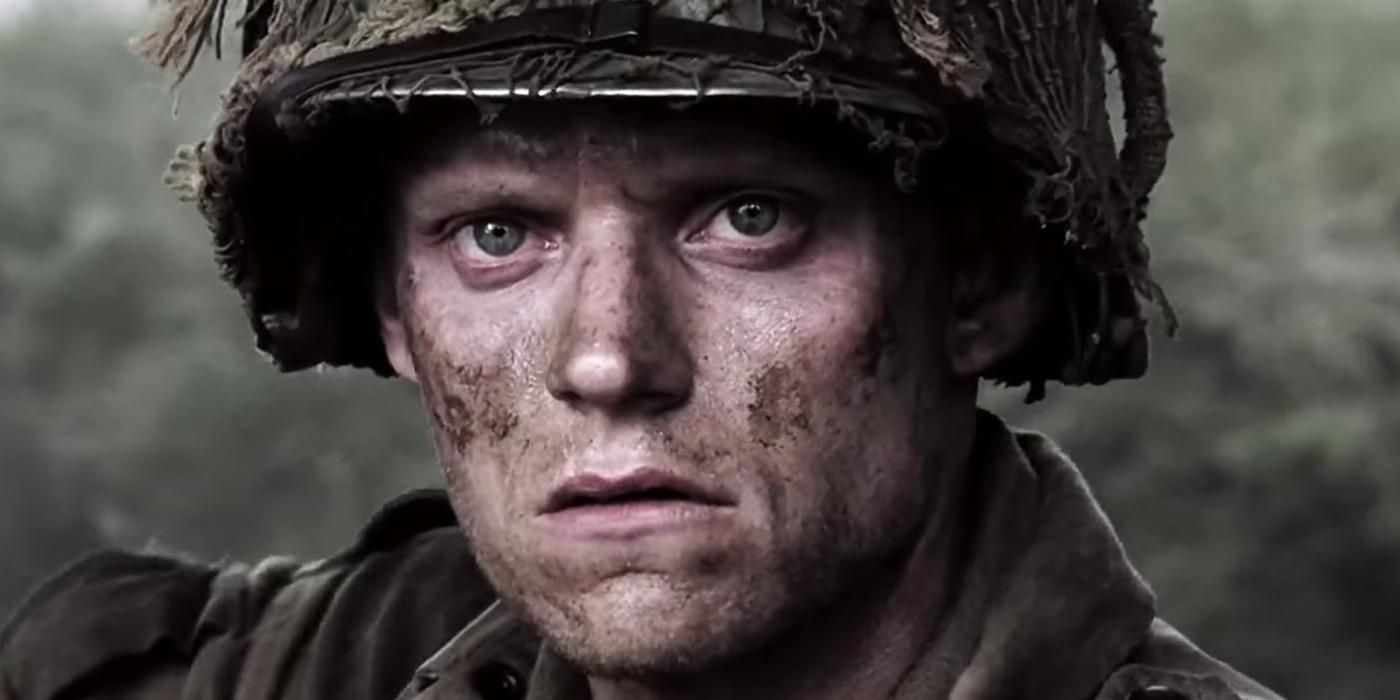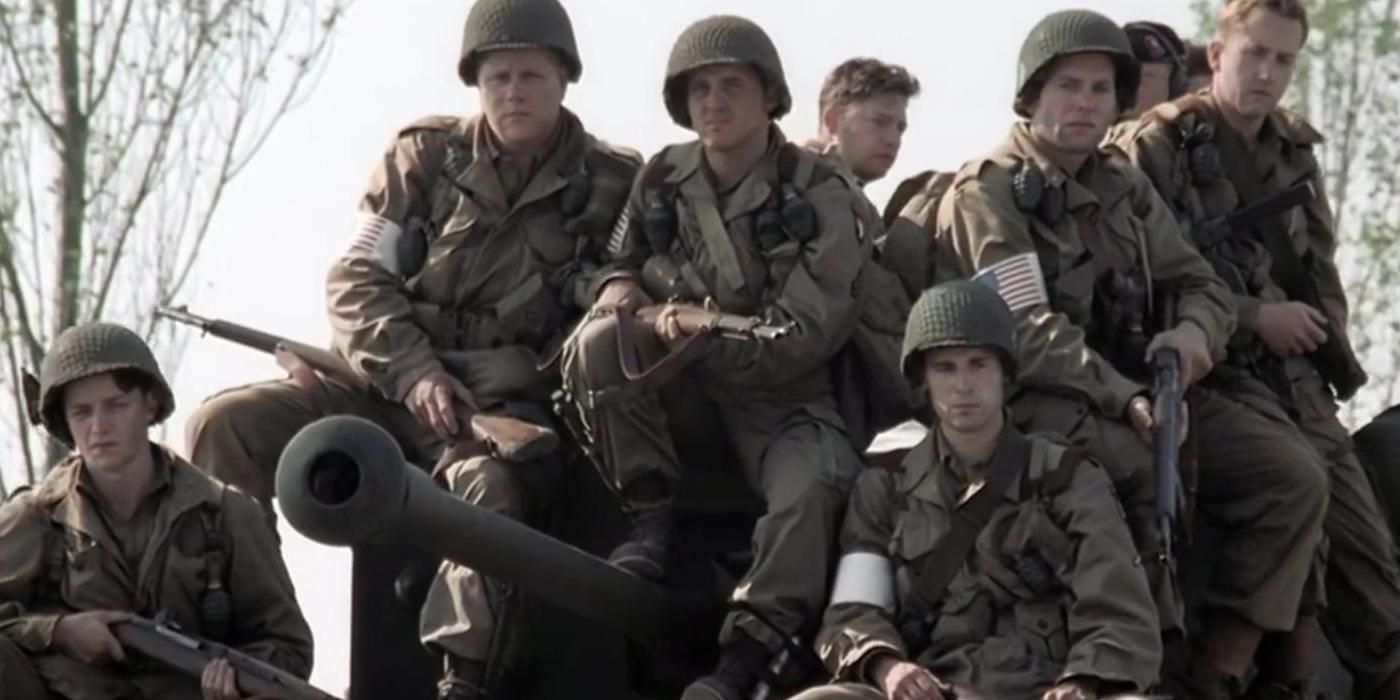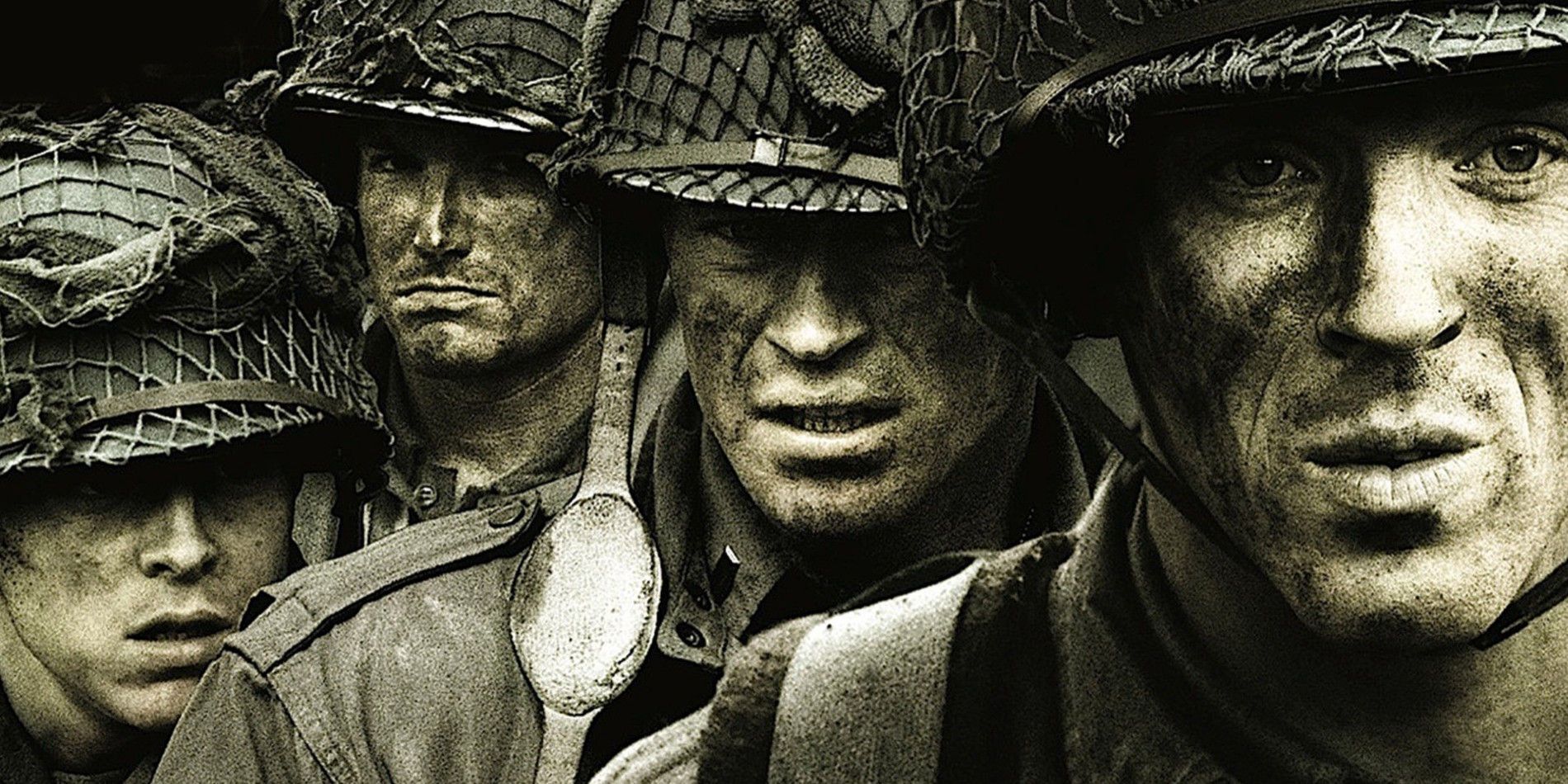All these years after Band of Brothers' release, the show is still looked back on as revolutionary because it changed TV forever. Band of Brothers is one of the most well-received and beloved TV shows of all time, with the 2001 HBO series still being discovered by new viewers and being remembered fondly by old viewers to this very day. Band of Brothers was a groundbreaking show that fundamentally changed the world's opinion on what TV could be, with the critically-acclaimed World War II series being one of the most important TV shows ever.
Band of Brothers is the product of series creators Tom Hanks and Steven Spielberg, who decided to collaborate on a World War II miniseries after working together on Saving Private Ryan. The miniseries was so successful that Hanks and Spielberg even made spiritual successors to Band of Brothers, including The Pacific and the upcoming Apple TV series Masters of the Air. Throughout its ten episodes, Band of Brothers stretched what was possible with TV at the time, being one of HBO's first massively successful programs (alongside shows like The Sopranos) and shifting the television landscape. So, here is how HBO's Band of Brothers changed TV forever.
Band Of Brothers Changed Production Values On TV
The biggest way Band of Brothers changed TV was that it showed the potential for what television production value could be. Sitcoms and low-brow content mostly populated TV for the longest time. Even when TV did try to dip into serious dramas or big-budget shows, the production quality was obviously a step below what could be seen in movies. Before Band of Brothers premiered over 20 years ago, there was a fine line between what TV could achieve and what film could achieve, with television being considered a cheaper and less prestigious version of true cinema.
Band of Brothers was instantly groundbreaking upon its release, with the series being indistinguishable from war movies. With the series being helmed by creatives who were fresh off the heels of Saving Private Ryan, Band of Brothers was a huge step up from its contemporaries. Band of Brothers was an incredibly realistic spectacle, with many viewers finally watching movie-quality content at home. The period piece could pull off its setting and time flawlessly, with Band of Brothers paying careful attention to the costumes, equipment, and set pieces. Band of Brothers raised the bar of what TV could be, basically creating prestige television.
Band of Brothers' attention to detail and increased production value can be attributed to the show's budget. When it was released in 2001, Band of Brothers was the most expensive series of all time, with the show's budget being around $125 million. The $12.5 million average for each episode was unheard of before Band of Brothers, but the miniseries used it to its full advantage to create a detailed and engaging show. Band of Brothers proved that massive TV budgets like this could pay off, with the series using its impressive production value to garner a massive audience that still exists today.
How Band Of Brothers Brought Cinema To The Small Screen
Besides the show's production value, Band of Brothers also changed TV forever by bringing cinema to the small screen. Band of Brothers' real-life story research allowed the show's narrative to be incredibly true to life in a way that previously could only be found in movies. Spielberg and Hanks' goal was to create an accurate recounting of the story of the men of E Company, 2nd Battalion, 506th Parachute Infantry Regiment of the 101st Airborne Division. The show's cinema-quality accuracy to real life can only be pulled off through loads of research, something previous shows weren't willing to do due to typically quick production schedules.
Band of Brothers' complex, overarching story isn't commonly seen on TV before the HBO miniseries. Before Band of Brothers, most TV shows were episodic due to the nature of how television content was consumed. Serialized TV is all over the place now, but it wasn't feasible until stories like that of Band of Brothers started being told. Band of Brothers pushed the line on what was possible with TV storytelling, creating a narrative that surpassed many movies coming out around the same time. However, the ability for a revolutionary story like this to be told can be drawn up to Band of Brothers' two creators.
Steven Spielberg and Tom Hanks' involvement in Band of Brothers allowed the show to bring cinema to the small screen. Before Band of Brothers, filmmakers rarely switched between movies and TV, with creatives mostly picking one medium and staying in their lane. Having Spielberg and Hanks involved in TV was revolutionary, with their role in creating Band of Brothers being a huge selling point. Tom Hanks and Steven Spielberg's movies had already been huge successes, and their switch to the TV world was a huge factor in tearing down the barrier between the two storytelling mediums.
Modern TV Would Look Very Different Without Band Of Brothers
Modern TV would look very different if it weren't for Band of Brothers. TV is now saturated with big-budget spectacle shows like Game of Thrones, The Last of Us, Stranger Things, and The Lord of the Rings: The Rings of Power, with the scale of these series only being possible in movies before Band of Brothers. Without the success of Band of Brothers, production companies may be hesitant to fork over massive budgets for TV shows, with historical miniseries like Chernobyl benefiting from the trend that Band of Brothers started.
Tom Hanks and Steven Spielberg's collaboration on Band of Brothers has also majorly influenced TV show trends today. In recent years all kinds of movie directors have switched to making TV shows, with Rian Johnson's Poker Face, David Fincher's Mindhunter, Alex Garland's Devs, and Frank Darabont's The Walking Dead being some examples. The increased production value has also allowed TV directors to prove they can handle movies, such as J.J. Abrams and the Russo brothers. TV has fundamentally changed for the better since the early 2000s, and it's all thanks to Band of Brothers.




